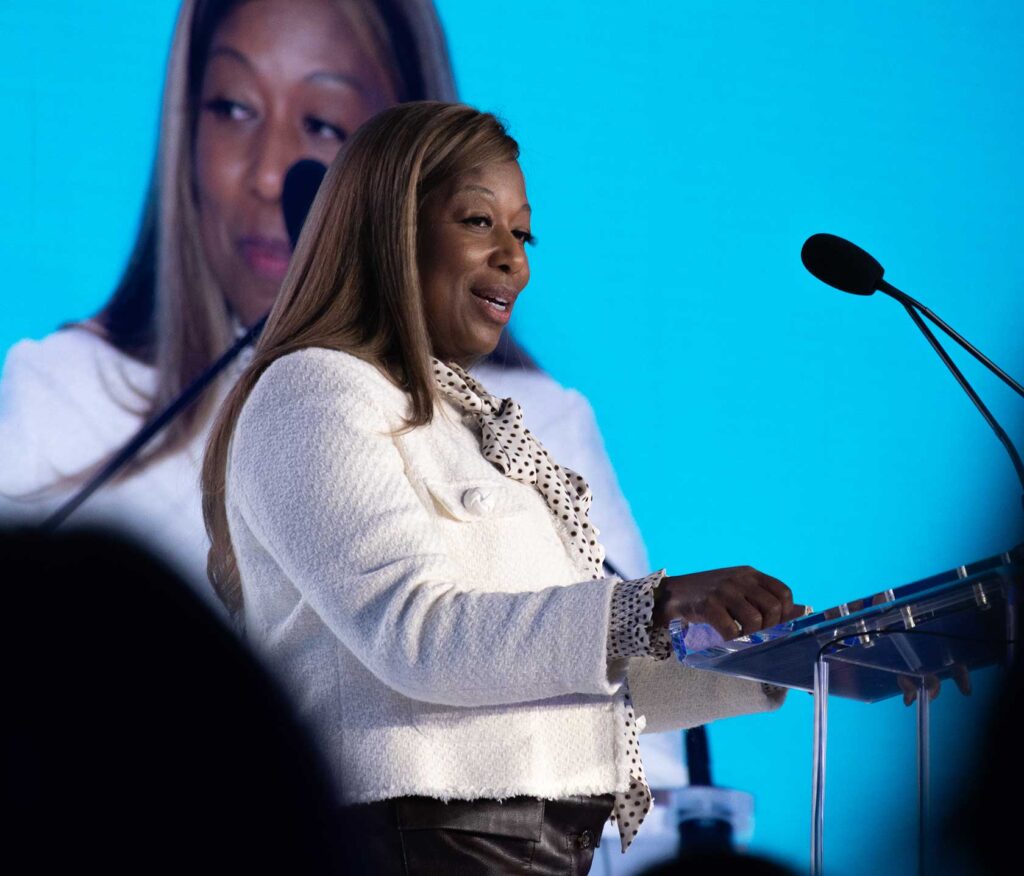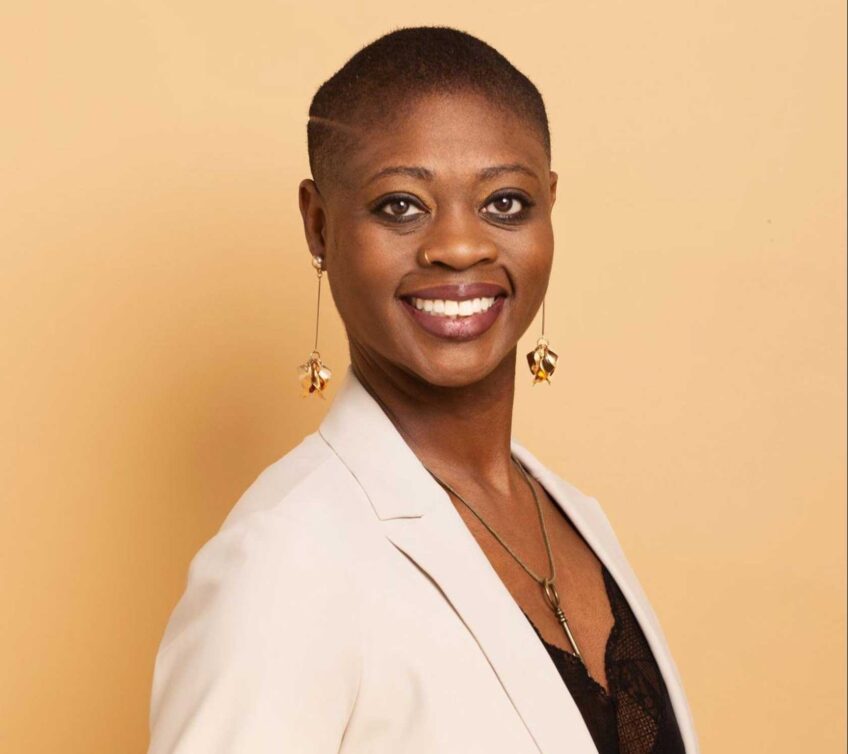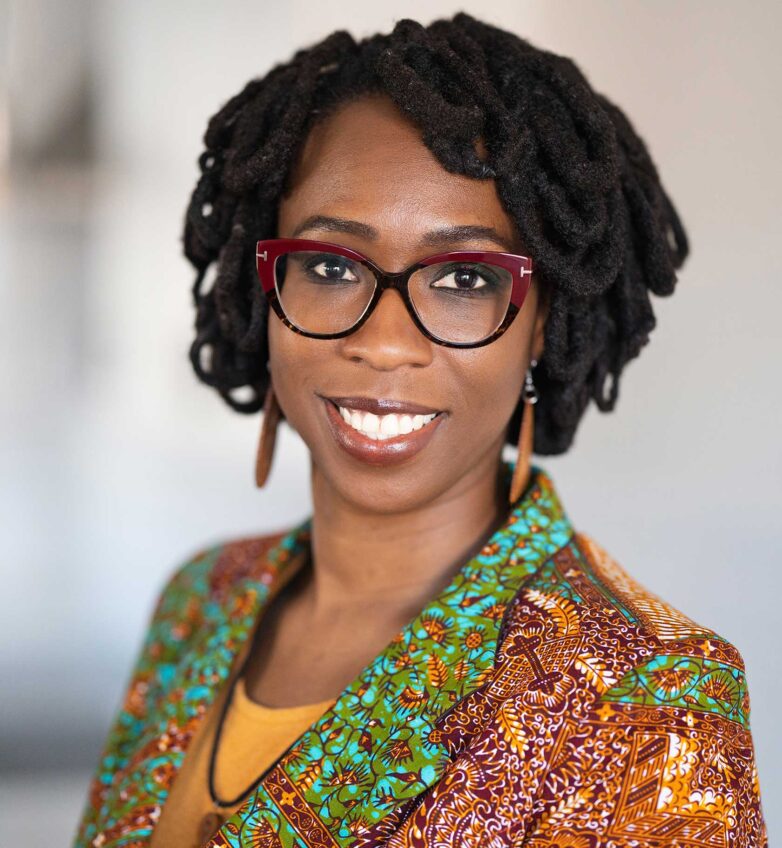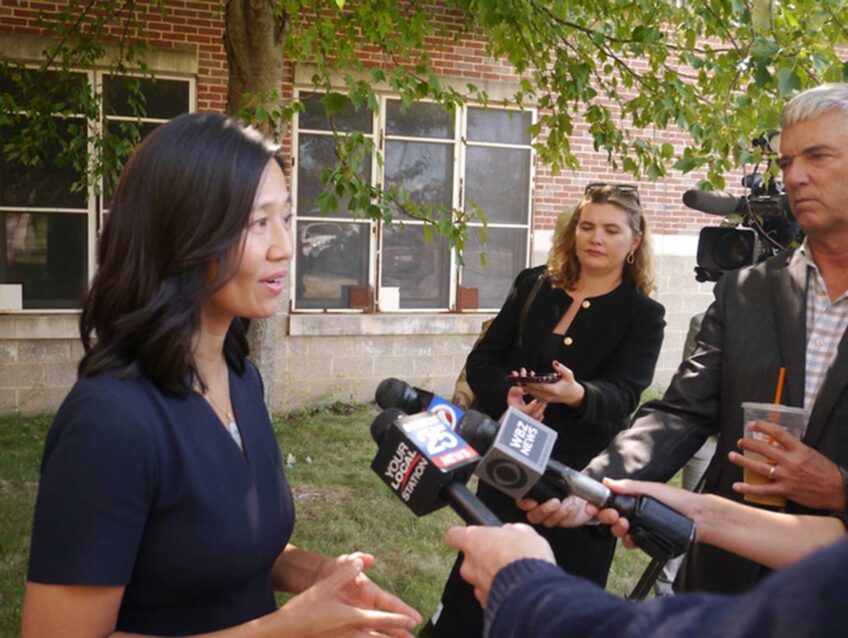
The Massachusetts Biotechnology Council calls its annual gathering the “State of Possible Conference.” To hear it described by newly elected board chair Tamar Thompson, Massachusetts’ booming life sciences sector is now at a moment when many goals once thought unachievable are now in reach.
She pointed to developments like the December approval by the U.S. Food and Drug Administration of two gene editing therapies for sickle cell disease as markers of an industry shifting from looking at how to treat diseases to how to cure them. Key to meeting this moment, she said, is growing diversity as a central tenet, both in terms of workforce and consumers, with goals around health equity.
“It’s a really exciting time in science to move the needle forward and to make sure that we are completely inclusive on that journey,” said Thompson, who stepped into the top board role at this year’s conference, at which efforts around diversity and the work of leaders of color in the field stood out.
In remarks at the event, the first Black woman to chair the powerful industry association said ensuring the industry’s continuing success will require bold changes.
“Being bold means that we have to advocate for policies that ensure access and equity for patients, whether it’s supporting incentives that drive scientific innovation or just fighting for policies that ensure access to an equitable healthcare system,” said Thompson, who also serves as head of corporate affairs at Alexion Pharmaceuticals.
That work will also mean continuing efforts to diversify the life sciences workforce, where many in the industry say demand for workers is rapidly outpacing the supply.
“Our goal is developing a skilled workforce that reflects the patient populations for which we serve,” Thompson said.
According to a report from MassBio in November, diversity in the sector continues to lag. The group’s 2023 diversity report found that people of color — a designation covering Black, Latinx and indigenous people — made up 14% of the workforce and 6% of executive management roles in the trade association’s member companies who responded.
Efforts — both within MassBio and beyond — aim to close some of those gaps.
“The talent is here and we need to do a better job connecting them with the skills and the training and the opportunity they need for a career path that’s going to change their lives and their families’ lives for generations to come,” said Zach Stanley, who heads Bioversity, the workforce development initiative founded by the trade association.
Bioversity, which officially launched in January, has had 600 applicants to the program so far — all Black and Latinx — said Stanley. The group’s second cohort of students graduated May 2.
Students in the program are already entering jobs. Stanley said program alumni have found jobs at companies including Vertex Pharmaceuticals, Flagship Lab Services and Foundation Medicine.
The program opened doors in many of the sky-scraping life sciences buildings that Josiah Wade-Green, a Roxbury native and Bioversity graduate, saw as he grew up.
“Being in Bioversity really gave me the spark of life again,” said Wade-Green, who graduated with the group’s first cohort in February and now works as a logistics technician at Abcam. “I felt like life was dull for me, being 23, 24 years old, just working jobs. I wanted a career.”
The work at Bioversity comes as local municipal funding has been directed to diversity efforts in the industry. In February, the city of Boston announced $4.7 million in funding to seven organizations, including Bioversity, to fund workforce development.
And the Healey-Driscoll Administration is touting a proposed economic development bill as another route to support and diversify the industry.
During remarks at the MassBio conference, Governor Maura Healey said the Mass Leads Act, if passed by the Legislature, would direct $2.8 billion in bonds authorizations to efforts statewide. That would include a 10-year reauthorization of the Massachusetts Life Science Initiative, a 2008 program launched by then-Governor Deval Patrick, which founded the private-public Massachusetts Life Sciences Center. The initiative was reupped by Governor Charlie Baker in 2018.
“We want people across all regions and across a diversity of backgrounds and experiences to be contributors to life sciences and also beneficiaries of the life sciences,” Healey said. “We don’t want to leave anything on the field, and we don’t want to leave anyone out.”
The Mass Leads Act would also fund an expansion of the Pathmaker program, a state initiative announced in June that is run through the Massachusetts Life Science Center and funds partnerships between life sciences companies and training providers, with the goal of creating free eight- to 10-week training programs as alternatives to pursuing a four-year college degree for the life sciences.
Those diversity efforts are among the steps by the state that Healey said would help the life sciences industry in general keep its foot on the gas.
“Our plan for the next decade and the next billion dollars is not to just keep things going,” Healey said. “We want to meet this moment by competing harder than ever. We want to elevate the work, increase our collaboration and grow this industry.”
During the conference, MassBio also recognized the leadership of Susan Windham-Bannister, the former and founding president and CEO of the Massachusetts Life Sciences Center, who, at the event, received the group’s Henri A Termeer Innovative Leadership Award.
Windham-Bannister said that the job of a founding CEO is to make a vision into a reality, and those contributions should fade into the background as the organization moves forward, but that she appreciated the recognition from MassBio that allowed her to step out from behind the curtain for her work with the life sciences center.
“I am truly appreciative and honored by your recognition, and I’m especially proud — this was in 2008 — of the fact that a woman and a woman of color was at the helm,” said Windham-Bannister, who led the center from its creation until 2015.
A push for equity in the industry, like that of today’s, was baked into the Massachusetts Life Science Center at its conception, she said.
“We were committed to the fact that no zip code in Massachusetts could determine who would benefit from our industry and who would find pathways into that industry,” Windham-Bannister said.




